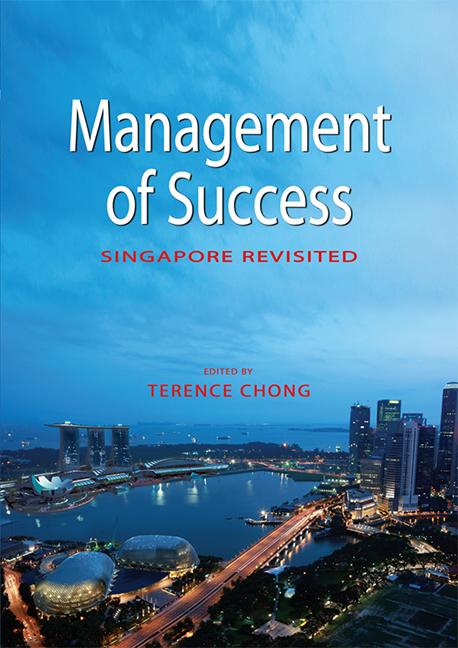Book contents
- Frontmatter
- Contents
- List of Tables and Figures
- Foreword
- Message
- Quote
- Preface
- The Contributors
- 1 Introduction: The Role of Success in Singapore's National Identity
- SECTION 1 SINGAPORE IN THE BIGGER PICTURE
- 2 Singapore's Foreign Policy: Reading and Adapting to the Fast-changing International Context
- 3 Singapore and ASEAN: A Contemporary Perspective
- SECTION 2 LEADERSHIP, POLICY AND POLITICS
- SECTION 3 THE RESTRUCTURING OF THE ECONOMY
- SECTION 4 THE TRANSFORMATION OF SOCIETY
- SECTION 5 THE LAW
- SECTION 6 MODIFICATION OF THE ENVIRONMENT
- SECTION 7 COMMUNITY AND NATIONAL SECURITY
- SECTION 8 LIFE IN SINGAPORE
- Index
3 - Singapore and ASEAN: A Contemporary Perspective
from SECTION 1 - SINGAPORE IN THE BIGGER PICTURE
Published online by Cambridge University Press: 21 October 2015
- Frontmatter
- Contents
- List of Tables and Figures
- Foreword
- Message
- Quote
- Preface
- The Contributors
- 1 Introduction: The Role of Success in Singapore's National Identity
- SECTION 1 SINGAPORE IN THE BIGGER PICTURE
- 2 Singapore's Foreign Policy: Reading and Adapting to the Fast-changing International Context
- 3 Singapore and ASEAN: A Contemporary Perspective
- SECTION 2 LEADERSHIP, POLICY AND POLITICS
- SECTION 3 THE RESTRUCTURING OF THE ECONOMY
- SECTION 4 THE TRANSFORMATION OF SOCIETY
- SECTION 5 THE LAW
- SECTION 6 MODIFICATION OF THE ENVIRONMENT
- SECTION 7 COMMUNITY AND NATIONAL SECURITY
- SECTION 8 LIFE IN SINGAPORE
- Index
Summary
LEVERAGING THE COLLECTIVE
There are two unique man-made creations in Southeast Asia. One is Singapore. The other is the Association of Southeast Asian Nations (ASEAN). The origins of their conception are very different and completely separate but their futures are intertwined and mutually supportive. Singapore became independent on 9 August 1965 and ASEAN was founded on 8 August 1967. Both have benefited from a relationship built over the last forty years and have become stronger from it.
Singapore is a founding member state of ASEAN (together with Indonesia, Malaysia, the Philippines and Thailand while the other countries were admitted later — Brunei Darussalam in 1984, Vietnam 1995, Lao PDR 1997, Myanmar 1997 and Cambodia in 1999). Over the years, Singapore has played its part in growing ASEAN into a visible regional inter-governmental body. As with other member states, Singapore has also used the ASEAN platform to deliver specific policy goals for Singapore's own economic, political and socio-cultural development. Singapore has not subsumed its interests under the ASEAN agenda but has used creativity and innovation to get greater value out of ASEAN.
Singapore's policy-makers have found that pushing the ASEAN button at the right moment can provide them with an advantage which Singapore does not have individually and this has enabled them to obtain benefits which are not available otherwise. Most of these are in the broad strategic arena, particularly in managing the relationships with bigger powers having an interest in Southeast Asia. Furthermore, many of the challenges confronting the region today (for example, managing the impact of the financial crisis following the financial meltdown in Wall Street, combating communicable diseases, drug trafficking, environmental degradation and terrorism, and managing natural disasters) are multilateral issues and transnational in nature. Very often, such challenges can be better managed through ASEAN diplomacy and mechanisms.
- Type
- Chapter
- Information
- Management of SuccessSingapore Revisited, pp. 38 - 48Publisher: ISEAS–Yusof Ishak InstitutePrint publication year: 2010



